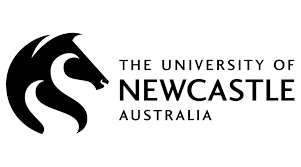University of Newcastle: Tertiary system can better support victims of gender-based violence
The United Nations (UN) described the global prevalence of gender-based violence (GBV) as a ‘shadow pandemic’, which has only been intensified by COVID-19.
Despite the ongoing significance of this issue, no previous research had examined the question of equity in higher education through the student experience of GBV.
A new research report published today by the University’s Centre of Excellence for Higher Education Equity (CEEHE) in the College of Human and Social Futures aims to bridge this research gap and is a crucial step in working to ensure campus continues to be a place for all.
Lead researcher Professor Penny-Jane BurkeLead researcher and Director of CEEHE, Professor Penny-Jane Burke, said her team used qualitative methods to produce a study focused on 24 in-depth interviews with student victim-survivors of gender-based violence.
“Higher education has been shown to play a significant role in alleviating the impacts of experiences of gender-based violence,” Professor Burke said.
“Whether someone is thinking about University, entering or participating – those who have experienced or are experiencing gender-based violence should feel safe, supported and welcome,” Professor Burke said.
While the student experience is a central focus of the research, it also examines obstacles to obtaining entry, shared motivations for higher education and course selection.
Through a questionnaire and in-depth interviews, victim-survivors highlighted the ongoing impact of GBV on their tertiary experience, including loss of family or community support, material poverty, profound loss of self-esteem and a continuing sense of shame and isolation.
Professor Burke said the questionnaire was designed to understand the different forms of gender-based violence that student victim-survivors, ranging between 18 – 64 years old, experienced in their lifetime.
“This continuum might include, for example, domestic violence, sexual assault, or verbal sexist abuse,” Professor Burke said.
Pro Vice-Chancellor of Student Experience Professor Laura-Anne Bull said the research puts forward a clear path for universities and service providers to support student victim-survivors to access and participate fully in higher education.
“Our priority as a university is that our communities are supported and safe. Every student’s situation is different, but it’s important to make clear that no matter who you are, or what your situation, our team of clinically trained campus care coordinators are here to support you,” Professor Bull said.
While the research highlighted the need for more support and awareness, respondents revealed ways that university study had built a stronger sense of self-worth, confidence, and capability.
Study participant, Suri, completed Open Foundation – a free pathway program offered at the University of Newcastle, before moving into further study.
“The more I studied and the more I actually got the confidence in my ability to study is when
I realised that this is what I should have been doing all along,” Suri said.
“I never thought I could really, and it wasn’t until I did Open Foundation that I realised I could.”
Despite the significant challenges many described in accessing higher education, the desire to help other women escape abusive relationships, and provide practical support to others, was described as a central motivation for enrolling in university.
Professor Burke said the findings show there needs to be further support strategies to enable student success for those with experiences of gender-based violence within all tertiary institutions.
“This is the start of a long-term research agenda to build on this important work, foster inter-agency collaboration and generate strategies that enable student victim-survivors to flourish and thrive. We hope the University of Newcastle can be a leader in building best practice for the sector,” Professor Burke said.
Professor Bull said the University of Newcastle wanted to become a best-practice model of support.
“Gender-based violence is an issue that is pervasive across society, it is an issue that requires urgent action. We’re really proud to be leading the way in this research and know it will help us identify gaps in order to provide equal access to tertiary education,” Professor Bull said.

